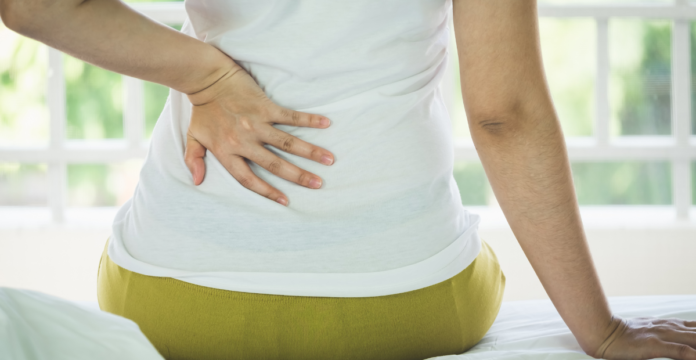A slipped disc is a condition that refers to an issue with a rubbery disc cracked between the spinal bones. These discs are formed by a jelly-like substance and perform as cushions for your spine.
A herniated disc occurs when all or some part of a disc is pressurized through a weakened part of the spine. This may place the burden on close nerves or the spinal cord. The lower back is most usually affected by slipped discs.
What Are The Slipped Disc Symptoms
Herniated disc symptoms can be shown in any part of your spine, from your neck to your lower back. Sometimes when the problem is not very serious there are no such herniated disc symptoms shown in the individual’s body
Symptoms include:
- Pain and numbness on one side of the body is one of the most common slipped disc symptoms.
- Severe pain in arms and legs also shows clear symptoms.
- Pain that gets worse at night with certain movements
- Tingling, or burning feelings in the affected area
The kinds of slipped disc symptoms can vary from person to person. See your specialist for herniated disc treatment if your pain results in numbness or tingling that disturb your ability to regulate your muscles.
Slipped Disc Causes
A slipped disc in back is most frequently the result of gradual, wear and tear due to an aging factor termed disk degeneration. As a person’s age increases, the disks become less elastic and more inclined to tear or rupture with even a slight strain or twist.
Most people can’t pinpoint the slipped disc causes. Sometimes, practicing the back muscles rather than the leg and thigh muscles to lift hefty objects can result in a herniated disk. Twisting and turning while lifting can become a slipped disc causes. Rarely, a traumatic incident such as a fall or a setback to the back is also can be the cause of a herniated disc.
READ ALSO: Tooth Extraction: Comprehensive Guide to the Dental Procedure
Herniated Disc Treatment
Treatments for a herniated disc in back range from conservative to surgical. The herniated disc treatment typically depends on the level of uneasiness you’re experiencing and how far the herniated disc has slipped out of its original place.
Most individuals can discharge slipped disc pain using a workout program that stretches and supports the back and surrounding muscles. A physical therapist may suggest exercises to strengthen your back while lessening pain.
If your slipped disc in back pain does not respond to over-the-counter herniated disc treatment, your doctor may prescribe stronger medications. These comprise:
- Muscle relaxers to discharge muscle spasms
- Narcotics to release pain
- Nerve pain medicines like gabapentin or duloxetine
Your specialist may recommend herniated disc surgery if your symptoms do not lessen in six weeks or if your slipped disc disturbs your muscle function. Your surgeon may perform herniated disc surgery to remove the injured or protruding portion of the disc deprived of eradicating the entire disc. This is termed a microdiscectomy.
In more severe circumstances, your surgeon may substitute the disc with an artificial one or take away the disc and fuse your vertebrae. This slip disc treatment, along with a spinal fusion and laminectomy, adds constancy to your spinal column.
Prevention From a Herniated Disc
To prevent a slipped disc, an individual should do the following:
- Workout: Firming up the trunk muscles supports the spine.
- Maintain good posture: This lessens pressure on an individual’s spine and disks. It keeps their back straight and aligned predominantly when sitting for long periods. They should lift heavy objects appropriately.
- Quit smoking: stop using any tobacco products for better spinal health.





